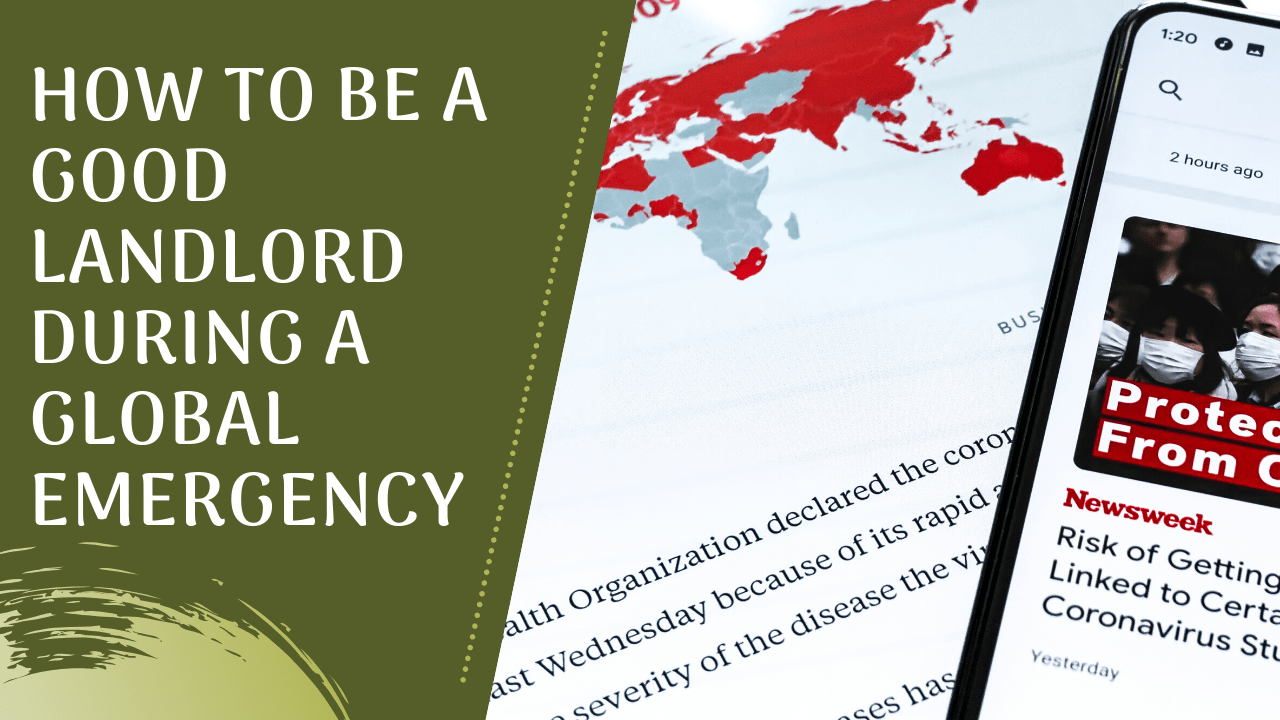How to Be a Good Landlord During a Global Emergency
Florida PMServices • April 13, 2020

At Florida Property Management Services, we know these are unprecedented and unsettling times for our owners, tenants, and professional partners. We hope you and your loved ones are staying well and safe, and we’d like to remind you that we’re here to help and support you and your investment properties throughout this crisis. When you have a question about rent payments, mortgage relief, maintenance, or anything pertaining to your rental home, contact our team and we’ll answer your question or point you in the right solution-driven direction.
Today, we’re talking to our landlords. During a global emergency like the current COVID-19 pandemic, it’s easy to get lost in the anxiety and uncertainty of whether rent will be coming in and what you’ll do if it doesn’t.
Remember that your tenants are feeling the same anxiety. Today, we’re sharing a few tips on being a good landlord now and during any global emergency. It’s important that you maintain high levels of service and support – your tenants will remember how you performed during this crisis.
Keep the Lines of Communication Open
Communication is always critical, and during a crisis or an emergency, responsiveness is even more important. You need to be available to your tenants and you need to be proactive about communicating with them. Don’t wait for them to call you about not being able to make a rent payment; check in now. Ask how they’re doing. Find out how you can work together to keep everyone in the property.
Talk about realistic plans for rent payments. Discuss whether non-emergency maintenance requests can wait. Provide resources for things like unemployment benefits, food assistance, and other community programs available for people who need help.
Your tenants may be emotional. As a good landlord, it’s your job to keep a clear head and to communicate openly. Respond to phone calls, text messages, and emails.
Be Mindful and Supportive of Tenant Protections
The CARES Act includes a moratorium on evictions for any rental property that has a federally backed mortgage. This lasts for 120 days, and most municipal and county courts in Florida are not hearing evictions, not serving Writs of Possession, and not accepting new filings at least for the rest of the month.
If your tenant is not paying rent, we know it’s frustrating. We know it has the potential to disrupt your own income stream and your long-term ROI.
Remember that this is an unusual circumstance. Your late fees, penalties, and consequences should be consistently enforced during normal business operations. But, during a global crisis, you’ll need to be flexible. You’ll need to do what makes sense. When your tenant informs you that they’ve lost their job and they don’t know when they’ll be able to make a rent payment, talk about what they can do. Some tenants will try to work the system and get away with whatever they can. But we’ve found that most of your good tenants will be willing to meet you halfway and come to some kind of agreement so that you at least get part of your rent coming in on schedule.
Make sure you’re aware of and taking advantage of your own benefits as well. There’s mortgage relief available to many homeowners, and you may be able to negotiate something with your bank or lender.
Focus on Tenant Retention
It’s hard to remember that this crisis is temporary, but at some point things will begin to feel normal again. You’ll want to make sure your tenants have a reason to stay in your property. Evicting your tenants who are behind in rental payments as soon as the moratorium is lifted is one way to get back to business, but think about whether anyone will want to rent from a landlord who does that.
You have a reputation to consider, and the recovery period for any global crisis will likely be long. Make sure your tenants are able to say that you were helpful, compassionate, and easy to work with. Make sure they have a reason to continue renting from you. If the economy gets worse, finding good tenants
to replace those you currently have will be difficult.
These are just a few ways you can set yourself apart from other Florida landlords during a period of national or global crisis. In Florida, we are prepared for disasters because of the constant threat of hurricanes. This one is a little different, but we feel good about our ability to recover.
Contact us
at Florida Property Management Services if you’d like some property management advice
or some help with your unique situation.













